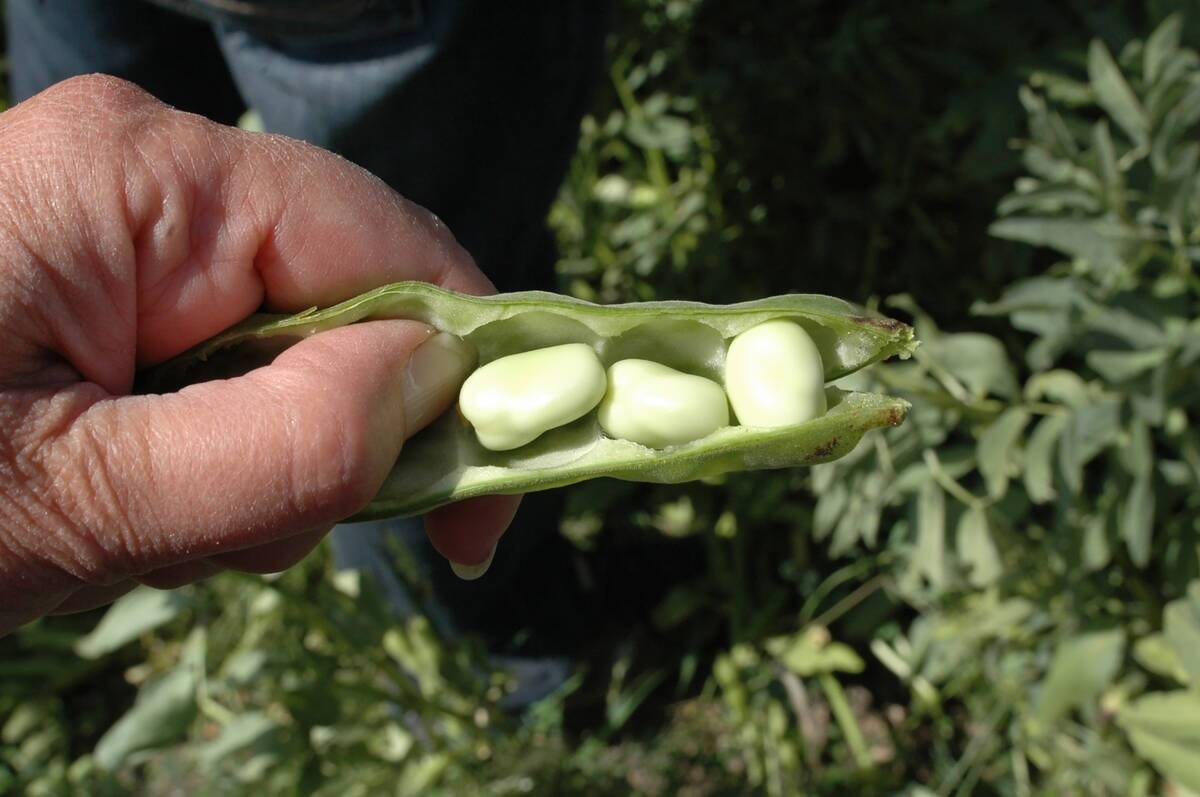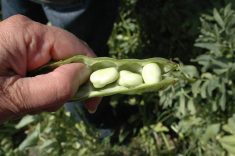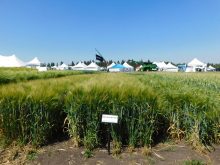guarantee The firm says that if its products are applied properly, it will remedy any nutrient deficiencies
Wolf Trax Innovative Micronutrients is one of those overnight successes 14 or more years in the making.
The Winnipeg-based firm and recent recipient of the Ernest C. Manning Awards Foundation Innovation Award, has been quietly building sales of its patented Dry Dispersible Powder (DDP) micronutrient fertilizer coating in 75 regulatory regions, including the U.S., Mexico and northern Europe. Now the privately held firm, founded by company president Geoffrey Gyles and managing director Kerry Green, is gaining attention and sales in Western Canada.
Wolf Trax is also selling a new seed-nutrition product called Protinus that promises quicker seedling emergence, especially in cold, wet soils.
Read Also

New crop insurer policy enables easier startup for faba beans
Agriculture Financial Services Corporation updated its normals for faba beans, which may open the door for more Canadian producers to feel comfortable growing the pulse crop in the future.
“Every single time the farmer gets a bigger, healthier crop and that bigger, healthier crop… fights disease better, it ends up yielding better, it ends up doing better for the farmer all the way through,” Gyles said.
However, unlike some micronutrient sellers, he stresses not every field needs micronutrients.
“Our basic philosophy is if you don’t need micronutrients don’t use them,” he said.
University of Manitoba soil science professor, Don Flaten says most Manitoba and Western Canada soils don’t need micronutrients, but where they are needed and not provided, yields can suffer. Soil and plant tissue tests are good ways to measure whether micronutrients are needed or not.
Not only have some sellers pushed micronutrients on farmers who don’t need them, but some formulations aren’t readily available to the crop. Moreover, where micronutrients are needed, they’re only needed in small quantities, making distribution difficult.
Gyles says Wolf Trax’s process addresses that by ensuring micronutrients are spread evenly, because they’re stuck on every prill of nitrogen, phosphorus and potassium being applied.
Wolf Trax’s micronutrients are also immediately available to crops and continue to be over the whole growing season, Gyles said.
Both innovations are what prompted the Manning Award.
Guarantee
Wolf Trax is so confident about its micronutrients it guarantees when applied properly they will eliminate the deficiency.
Both Wolf Trax’s DDP products and Protinus were registered in Canada by the Canadian Food Inspection Agency when companies still had to prove their products worked. (The federal government recently dropped that regulation. Now new fertilizer products can now be registered without proving they are efficacious.)
Wolf Trax’s micronutrients can also be mixed with water for foliar applications.
Local deficiencies
There are regions in the West where micronutrients deficiencies are more common. For example copper is frequently short in fields on either side of Alberta’s Highway 2 between Edmonton and Calgary, Gyles said.
There’s also growing demand among high-input farmers pushing yields, especially in crops like corn and soybeans where zinc and manganese are important, respectively.
“As you push the soil harder and harder the deficiencies start to show up,” Gyles said.
Protinus, Wolf Trax’s seed-applied fertilizer, includes zinc and manganese. It “spoon feeds” nutrients to seedlings for a fast start, said Jennifer Bailes, director of seed innovations. It also changes the pH around the seed making it easier for the seedlings to absorb nutrients.
Replicated trials show Protinus boosts crop yields even where soil tests show adequate nutrients, Bailes said.
“Seventy per cent of the time we see a positive yield response,” she said.
Protinus-treated wheat, corn, soybean and canola yields are five, four, three and one per cent higher than the untreated crops, respectively, Bailes said.
Recommended application rate is six ounces per 100 pounds of seed. (The suggested retail price is $49.75 a kilogram or almost $24.90 a pound.) The cost per acre for wheat, soybeans, corn and canola is around $7.63, $5.08, $1.40 and 42 cents, respectively.
In the first 28 days after emergence plants grown with Protinus-treated seed are typically 15 to 20 per cent larger than non-treated plants and have up to 30 per cent more root development, according to Bailes.














